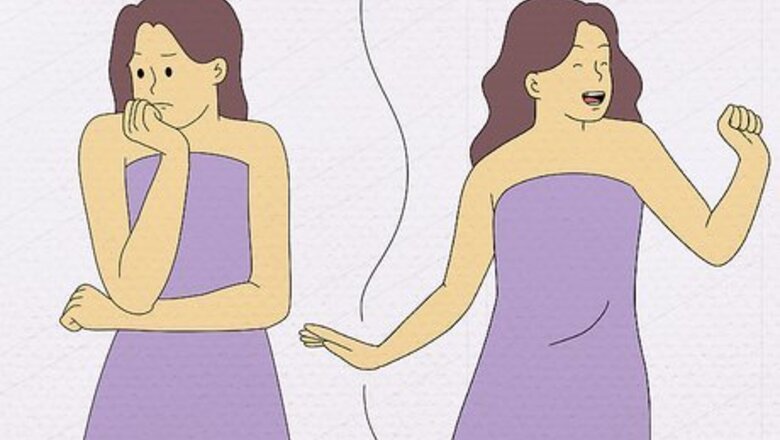
views
- An extroverted introvert’s core personality falls on the introvert side of the introvert-extrovert spectrum, but they possess many traits and abilities of extroverts, too.
- You might be an extroverted introvert if you need time to warm up in social situations, prefer deep conversation over small talk, or are selectively social.
- Extroverted introverts are adaptable in many situations, but find it draining to force extroversion when they’re tired and may confuse others about their true personality.
What's an extroverted introvert?

An extroverted introvert is an introvert with some extrovert tendencies. Most people are born naturally more extroverted or introverted—extroverts get energized by social interactions, whereas introverts feel zapped by social interactions and need to recharge their energy alone. However, most folks don’t fit neatly into one extreme or the other and fall somewhere in between. Therefore, an extroverted introvert is someone whose core personality lies on the introverted side of the spectrum, but who has the ability to act more extroverted in the right circumstances or when they’re feeling energetic. For example, an extroverted introvert might normally be quiet or shy at a party. However, if they know other attendees well and are feeling energetic, they’ll act more extroverted and bold. People who fall near the exact center between extroversion and introversion are known as ambiverts. Often, extroverted introverts (and introverted extroverts) consider themselves ambiverts. While ambiverts blend qualities of extroverts and introverts together, people known as omniverts switch between extroversion and introversion drastically.
Signs You’re an Extroverted Introvert

Your energy level depends on your environment. Whether an extroverted introvert feels more shy or social depends on a variety of factors, like how many people are around, how well they know them, or the overall noise level. Generally, they thrive in more quiet environments with trusted friends than they do at events like concerts or parties, surrounded by many strangers or loose acquaintances. This might sound like a plain introvert, but more outgoing introverts know how to “turn it on” and socialize when it’s expected of them. Even if they don’t prefer a large gathering, they can still make conversation and enjoy themselves—it just takes a little more effort on their part.

You find new people interesting, but you’re also exhausted by them. Extroverted introverts usually like meeting unique, intriguing people with interesting backgrounds, or just casually people-watching from their favorite café window. However, making conversation takes a lot of effort and they often need some alone time afterward to collect themselves and recharge. This isn’t true for every single interaction, though. Certain people or conversations might drain you while others are more stimulating and energizing. Even though you need time to ground yourself after socializing, you can still get lonely if you’re by yourself for too long at a time.
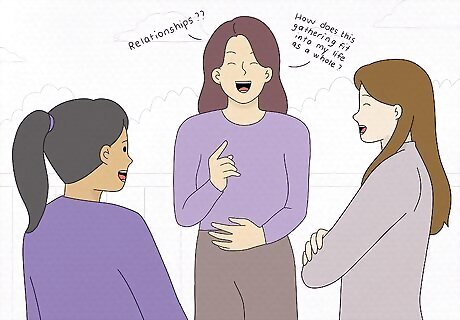
You can be witty and charming but reflective and deep at the same time. When they’re feeling it, extroverted introverts can hold their own in a group conversation and even get the whole room to laugh. However, their mind might be racing while they talk, looking inward and contemplating deeper thoughts, like their relationships with the people in the room or how the gathering fits into their life as a whole. When they’re alone, extroverted introverts’ thoughts get even deeper. They might enjoy pondering philosophical ideas, like the meaning of life or the expansiveness of the universe, and enjoy having some solitude to spend time with these heavier topics.
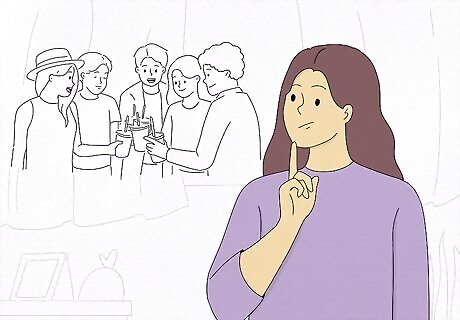
You need time to warm up in social situations. An extroverted introvert prefers to know what a social scenario will be like ahead of time to mentally prepare. When they’re unsure what to expect, they need a few minutes to adjust when they arrive (unlike an extrovert, who can barge in guns a-blazin’). This is usually because they don’t love small talk or meeting lots of new people at once and need to remind themselves to turn on their more extroverted charm. Because more introverted people are so comfortable alone, it can be a shock to suddenly find themselves in a roomful of people (even if they’re an extroverted introvert who genuinely likes most people). Even when they’ve adjusted to the room, extroverted introverts rarely feel the need to make a big splash or prove themselves to the crowd. This doesn’t mean they don’t like a little recognition now and then, but they don’t go out of their way to get it.

You prefer to talk about what’s on your mind over making small talk. Extroverted introverts are chatty about things they’re passionate about, but tend to keep quiet and listen otherwise. Meaningful conversation and deep connections feel satisfying, while superficial small talk feels draining and unimportant. In many cases, the deeper the conversation, the more energized they feel. This doesn’t mean all extroverted introverts are an open book, though. Like most people, they feel more comfortable opening up once they’ve established a connection with the person they’re talking to.
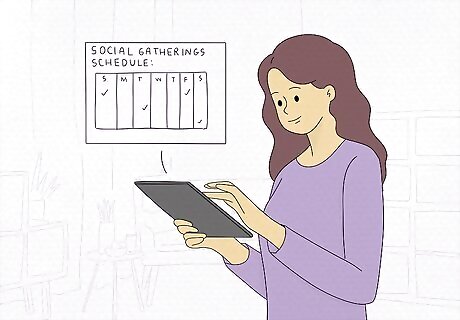
You’re selective about when and how much you socialize. An extroverted introvert doesn’t mind a good party or hanging out with a group, but they know they can only handle so much of it before they need a break. When they get an invite, they check their calendar closely and try to space out their social engagements when possible (maybe even turning some events down so they can have enough alone time to recharge). Whereas an extrovert might thrive on a weekend day with back-to-back-to-back plans, an extroverted introvert will probably choose only 1 or 2 events to attend before heading home.

You get confused for an extrovert. Since they often contribute to social situations and can be quite charming when they feel like it, people may assume an extroverted introvert is just a plain extrovert. However, when they need time to recharge or need to be alone, other people might get confused or think something must be wrong since they’re normally so outgoing or social. If you’re an extroverted introvert, never feel bad for justifying your need for peace and quiet to others. Set boundaries for yourself around how much stimulation you can take—when time’s up, politely excuse yourself from the situation, explaining as much or as little to others as you feel the need to.

You spend most conversations listening, but contribute when you want to. Extroverted introverts are happy to listen and observe, even though they may enjoy being around people. This is especially true in big group conversations or large gatherings (one-on-one conversations or small gatherings are more their speed). This makes most extroverted introverts great listeners, which helps other people feel connected to them.

You prefer a core group of good friends versus large social circles. An outgoing introvert’s introverted side shows most clearly in who they choose to spend their time with. They’re selective about who they let into their lives because they have limited energy for social situations, and prefer to establish and maintain a few close friendships than get to know a ton of people more superficially. Extroverted introverts who fall closer to the extroverted side of the spectrum may run in many social circles, but feel overwhelmed when they need to balance everyone in their life. An extroverted introvert’s good friends often notice how they open up and thrive in small gatherings, but shrink a bit around strangers or in large groups.
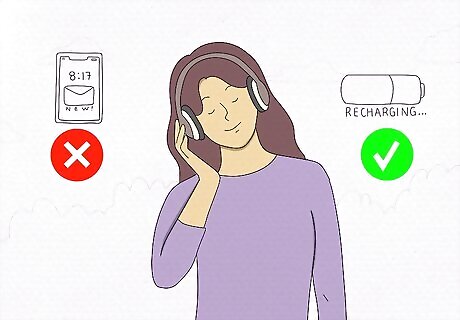
You may not reach out or answer messages until you're recharged. Once an extroverted introvert gets their alone time, that doesn’t mean they’re ready to chat right away. They might need a few hours (or days, depending on how drained they feel) to feel rested. Only then will they text back, make plans, or reach out to friends and family. Others might view this as unresponsiveness or even intentional ignoring, but extroverted introverts just want to make sure they’re replying with their whole focus instead of shooting off a mindless answer.
Benefits of Being an Extroverted Introvert

You’re flexible and adaptable in a number of different social scenarios. Ambiverts—including extroverted introverts—have a much easier time adjusting their approach to people based on the situation they’re in. They can be talkative and charming like an extrovert when it suits the environment, or a thoughtful listener like an introvert when they need to take a backseat. This helps them connect more easily and deeply with a wide variety of people. This ability is sometimes considered an indicator of high emotional intelligence, or the ability to be aware of and control your emotions in order to handle interpersonal interactions with empathy. Extroverted introverts are often successful at work because of this. One study found that ambivert sales employees outsold their more extroverted colleagues, moving 51% more product per hour, because they had the ability to hear out their potential customer’s questions and concerns while also being able to chat them up and successfully close a sale.
Challenges of Being an Extroverted Introvert

It's draining to read the room and be extroverted when you’re not feeling it. If you’re self-aware, you can usually tell when it’s time to be extroverted. However, if you’ve had a long day or have been around people for too long, it can be exhausting to constantly check your surroundings and force yourself to be more outgoing when you’re really craving some quality alone time. If you’re less self-aware, you might end up mismatching your approach to a situation. For example, you might keep to yourself at a networking event where you probably need to be more social. This can be frustrating and demoralizing, draining you even more. To help, try to take short self-care breaks throughout the day to center yourself. Steal a few moments to meditate, zone out to your favorite song, or just sit in silence for a moment to recharge and get ready to face people.
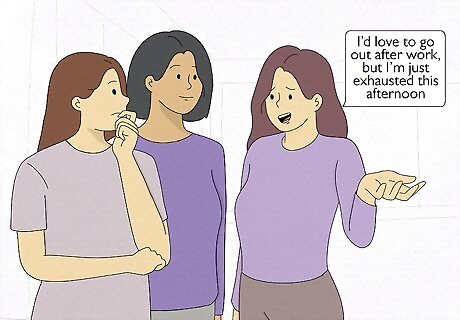
It may be hard for others to get a read on your personality. People who don’t know you super well might get confused when you seem like a bubbly extrovert in the office but then shy away from after-work happy hours or go quiet at large staff parties, for example. They may think you’re slightly unpredictable or flaky, when in reality, you just need time to recharge before you can be your more social, outgoing self again. To help, be honest when you’re just not feeling up to a gathering or need some alone time to recoup. You don’t have to go too in depth or get personal—simply say something like “I’d love to go out after work, but I’m just exhausted this afternoon,” or offer to meet up another time when you can plan and prepare for an outing.














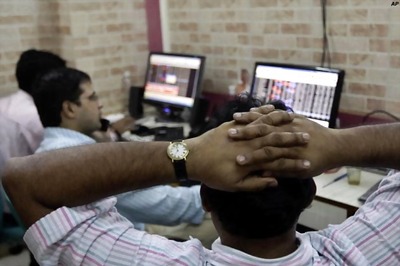



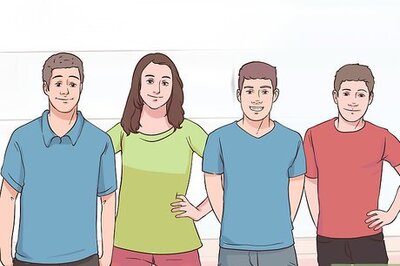
Comments
0 comment